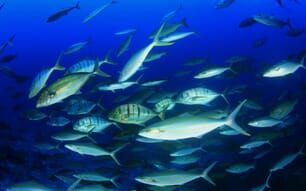The Marine Stewardship Council (MSC) is by far the largest and most well-known certification agency for seafood. It has created an ecolabel that producers can use on their products when they have been granted a certificate. The label “guarantees” that the seafood has been harvested in a sustainable manner, and that the fish has been taken from a sustainable population.
Some countries, such as Iceland and some regions, such as Alaska, have an additional strategy to document sustainability, and have developed their own certification programmes.
Iceland has established “Iceland Responsible Fisheries” and Alaska has established “Seafood from Alaska”. Both of these emphasise the origin of the product, and provide sustainability certification.
Accepted by the market
“Our study shows that alternative third-party certification is accepted by the market. We believe that the establishment of a Norwegian sustainability programme can give new opportunities. There may be, however, challenges associated with choosing not to use the MSC system,” says scientist Bjørg Nøstvold from Nofima.
Together with scientist Ingrid Kvalvik, she has been commissioned by the Norwegian Seafood Research Fund (FHF) to evaluate the possibilities for creating a Norwegian sustainability certification.
The scientists have interviewed producers, supermarket chains and others in Sweden and Great Britain, and they have interviewed environmental organisations and others who work with the certification in the fishing industry. They have also carried out a long-term store-based study to discover whether certification influences prices in British supermarkets.
“The studies show that sustainability certification is a well-established purchasing criterion both in Sweden and in Great Britain, although most companies also buy non-certified fish. This confirms, among other things, that it is currently unrealistic to attempt to work without certification in many important markets,” says Nøstvold.
Attitudes to sustainability certification differ somewhat between the two markets.
British stakeholders are significantly more accustomed to seeing alternative systems such as IRF and the Alaskan “Seafood from Alaska”. They are also more open to such systems. KRAV and MSC are common in Sweden, but the “traffic-light” list of the WWF is most significant.
Sweden and Great Britain also differ widely in how sustainable products are labelled.
“It is interesting that the sustainability logos in Sweden are found on pretty much everything in the freezer. And in Great Britain, only 21 of the 333 product we investigated had the MSC logo,” says Nøstvold.
National control
“The advantage of MSC is that it is internationally recognised and well-established in many of our most important markets. A Norwegian national programme would have to repeat everything right from the start. Time, cost and efficient planning are therefore key concepts when considering whether to establish a national strategy,” says Nøstvold.
The wish to establish national strategy, however, may be sufficiently strong to evaluate its advantages.
“A national strategy would give greater control of price, partly due to the lower operating costs that arise when it is possible to avoid the use of a consumer-facing logo. The supermarket chains say that the consumers are not particularly concerned about a logo, and prefer to rely on the decisions taken by the merchant or supermarket. And research supports this conclusion. Further, while it is true that our investigations have revealed a price premium in British supermarkets for the MSC label, there are no indications that this premium is carried onwards along the chain of value,” says Nøstvold.
Sustainable fishing has been fundamental for many decades in countries and regions such as Norway, Iceland and Alaska, and fish management here has been an example to be followed by others. This means that national strategies can be used to demonstrate this in a better manner. Certified Norwegian fishing companies achieve higher ratings than most others also in the MSC evaluation, without this giving additional advantages in the programme.
“A national strategy would open the possibility of including Norwegian origin and social sustainability in the evaluation. Several European companies mention social sustainability as a new aspect, and it appears that the Fairtrade label is also having greater success. It is easy for the Norwegian industry to demonstrate its security and fair working conditions. It’s not clear whether we can take higher prices, but it is clear that we will gain new customers and improve our image,” says Nøstvold.
A long-term project
Experience has shown that it takes time to establish a certification programme, not only to get the programme off the ground, but also to gain acceptance from customers. Customers and others involved in the market must become familiar with the programme and accept it as a worthy alternative.
“It would be a great advantage if the whole of the Norwegian industry were united, or at least a sufficiently large part of the industry to give the programme strength and credibility. We realise that this might be difficult in practice,” says Nøstvold.
“Iceland and Alaska both use not only their local programme but also the MSC programme. This would, of course, be possible also in Norway, but is rather inefficient, and would increase not only the price of fish but also costs in the industry. We should, therefore, make it our goal to use only the Norwegian programme, even if it will probably be necessary to retain MSC certification during the transition period. This is also a good idea since some of those involved may have customers who require the MSC certification, particularly until the Norwegian programme becomes fully accepted,” says Nøstvold.
Bjørg Nøstvold has concluded that it is possible to develop a Norwegian sustainability certification programme, if the industry decides that this is what it wants.
Experience from Iceland and Alaska have shown clearly that alternative third-party certifications can be accepted. It is possible in this case to learn from their previous experience and to draw advantages from the work they have done in gaining acceptance for national programmes in the market.
Much work will, however, be necessary, and a sufficient fraction of the industry should support the idea before the decision is taken to develop a Norwegian sustainability programme



